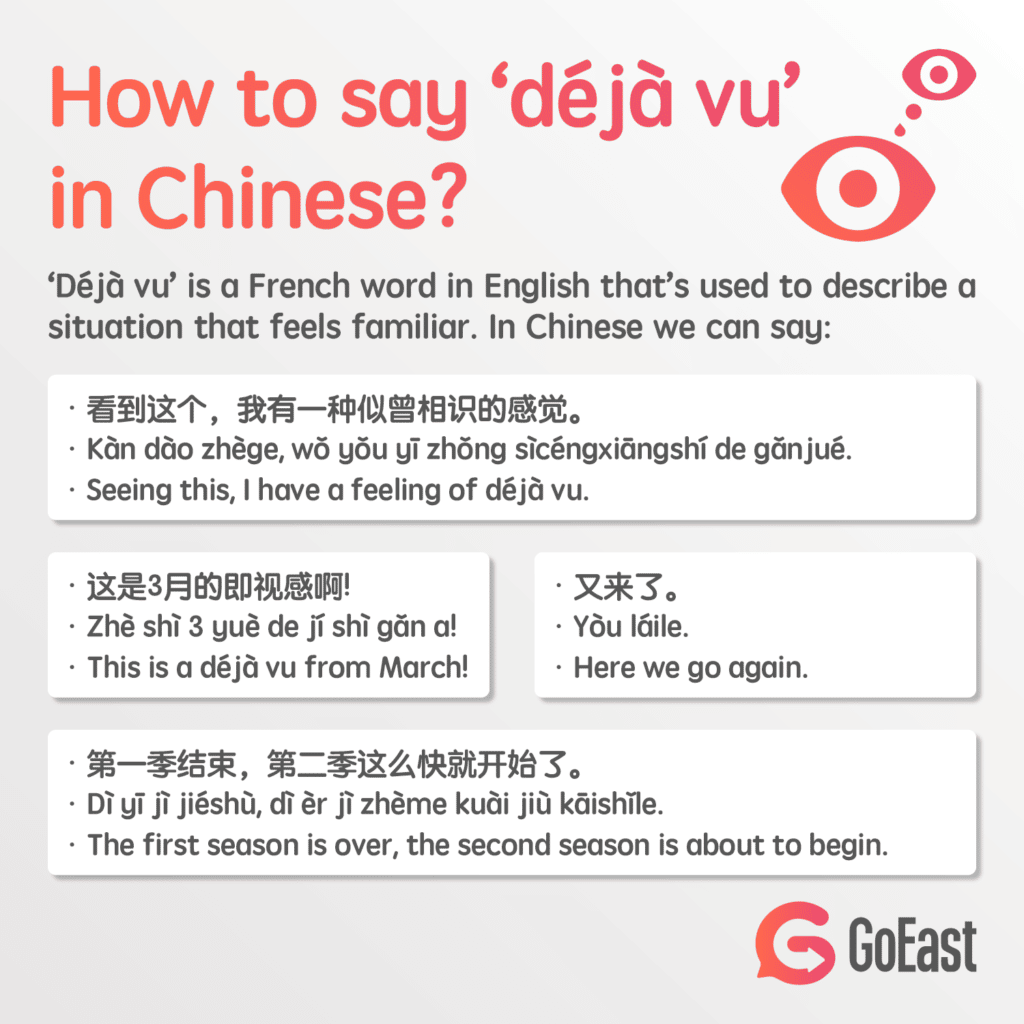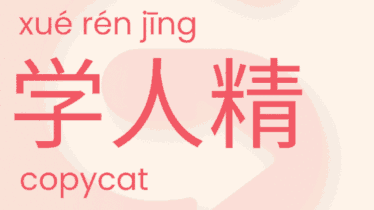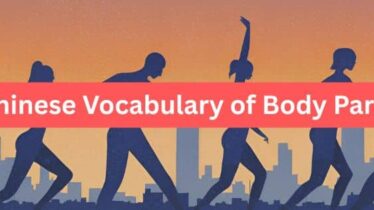How to say ‘déjà vu’ in Chinese?
‘Déjà vu’ is a French word in English that’s used to describe a situation you feel you’ve been in before.
Like, you feel you’ve already experienced something before because it feels so familiar, even though it’s a new day. Or the feeling when you’re busy getting some extra food & water in the house… just in case?
Pleco will give you two options; “既视感 jì shì gǎn” and “似曾相识 sìcéngxiāngshí”, but because the Chinese language doesn’t exactly have this concept, you can describe a ‘Déjà vu’-vibe of fences going up or anything in several ways.
Such as:
- 看到这个,我有一种似曾相识的感觉。
- Kàn dào zhège, wǒ yǒuyī zhǒng sìcéngxiāngshí de gǎnjué.
- Seeing this, I have a feeling of déjà vu.
And:
- 这是3月的即视感啊!
- Zhè shì 3 yuè de jí shì gǎn a!
- This is a déjà vu from March!
If you’re looking for something more simple, you can also say:
- 又来了。
- Yòu láile.
- Here we go again.
But we’ve also seen this one going around:
- 第一季结束,第二季这么快就开始了。
- Dì yī jì jiéshù, dì èr jì zhème kuài jiù kāishǐle.
- The first season is over, the second season is about to begin.




